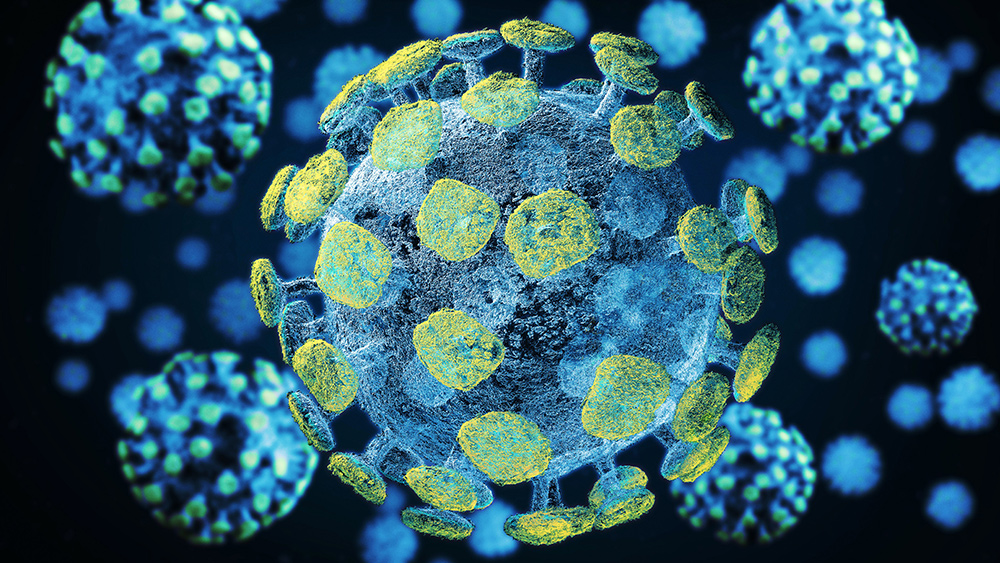24 Melbourne suburbs under urgent coronavirus alert following detection of coronavirus fragments in wastewater
03/04/2021 / By Nolan Barton

Residents and recent visitors of Tarneit, Werribee and Hoppers Crossing were urged to get tested at the slightest hint of infection after viral fragments of the Wuhan coronavirus (COVID-19) were detected at the Werribee wastewater treatment plant in Melbourne on Thursday, Feb. 25.
The Department of Health and Human Services (DHHS) issued an urgent coronavirus alert for the three Melbourne suburbs Monday evening. This brings the total of Melbourne suburbs under urgent coronavirus alert to 24.
The department said independent testing confirmed the result on Monday afternoon, March 1. It also stated that increased movement of people could result in more detection of viral fragments in wastewater. There had been no recent cases of coronavirus in the area prior to the testing.
“Anyone who has any symptoms of COVID-19 is urged to get tested, especially if you live in or have visited these areas from February 23, 2021,” the DHHS said in a statement. “Viral fragments were found in a wastewater sample collected on February 25 with no known people in the area who have recently had COVID-19.”
Samples were taken from the inlet to the Werribee wastewater treatment plant.
Viral fragments found in wastewater of other Melbourne neighborhoods
On Feb. 25, similar viral fragments were also found in wastewater at the Lilydale treatment plant in Melbourne’s outer east – another area with no known COVID-19 cases.
Because of this, residents of Lilydale, Chirnside Park, Coldstream, Kalorama, Olinda, Montrose, Mt Dandenong, Mt. Evelyn, Yarra Glen and Yering, as well as those who’ve visited the area since Feb. 23, have been advised to get tested if they have even the mildest of COVID-19 symptoms.

The health department also revealed a weak detection of viral fragments in wastewater in Melbourne’s outer west on Saturday, Feb. 27.
The catchment covered Taylors Hill, Plumpton, Hillside, Sydenham, Delahey, Caroline Springs, Burnside Heights, Kings Park, Albanvale, Burnside and Deer Park. Residents and visitors of these suburbs from Feb. 20 to 22 were also urged to get tested if they’re showing even the slightest of symptoms.
Wastewater monitoring was done at 142 locations across Victoria, including 71 wastewater treatment plants and 71 sites within Melbourne metropolitan sewerage networks.
Unexpected detections of viral fragments have also occurred in other wastewater treatment plants in the state of Victoria, of which Melbourne is the capital of. These have included detections in Altona, Anglesea, Ararat, Apollo Bay, Benalla, Daylesford and Portland. More than 14 days have elapsed since those detections with no new cases diagnosed and no new wastewater detections so having an undiagnosed infectious person or community transmission in nearby areas would be unlikely.
“Fragments of the virus detected in wastewater may be due to a person with COVID-19 being in the early active infectious phase or it could be because someone is continuing to shed the virus after the early infectious period,” the health department said.
There are 10 active coronavirus cases in Victoria. (Related: Aussie authorities trace Perth coronavirus infections to hotel security officer.)
Australia and New Zealand collaborating to understand coronavirus viral fragments in wastewater
Victoria has joined other Australian states and territories and New Zealand in collaborative research to understand the occurrence of coronavirus viral fragments in wastewater.
The Collaboration on Sewage Surveillance of SARS-COV-2 project brings together health departments, water utilities, laboratories and researchers to share advances in the rapidly evolving field. It is coordinated by Water Research Australia.
According to the state health department’s website, wastewater monitoring could show the possible presence of coronavirus in a local community. It is done by analyzing samples of untreated wastewater for fragments of SARS-CoV-2 – the virus that causes COVID-19.
The wastewater testing method has been used around the world to monitor poliovirus, norovirus and adenovirus in wastewater.
Victoria’s active wastewater surveillance program for coronavirus viral fragments is used alongside testing results and other health data in the health department’s response efforts.
If viral fragments are detected in areas with active or recently active cases of coronavirus, it is likely that no additional public health measures would be needed although the situation would continue to be monitored. But if viral fragments are detected in areas with no recent positive cases, wastewater testing would be increased to monitor trends and targeted testing might be implemented to help clarify the source.
Follow Pandemic.news for more news and information related to the coronavirus pandemic.
Sources include:
Tagged Under: adenovirus, Collaboration on Sewage Surveillance of SARS-COV-2 project, coronavirus, covid-19, Department of Health and Human Services (DHHS), norovirus, poliovirus, SARS-CoV-2, urgent coronavirus alert, wastewater, wastewater treatment plants, Werribee wastewater treatment plant




















